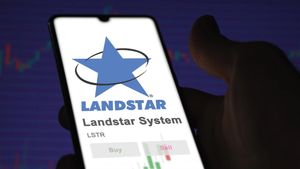Financial News
Level One Evidence Proves Premenopausal Patients within the Ultra-Low Subset of Agendia’s MammaPrint Low Risk Result Can Safely Forgo Chemotherapy
- MammaPrint is the only FDA-cleared gene expression test to identify early breast cancer tumors with an Ultra-Low risk that can safely avoid chemotherapy, with a 99% breast cancer specific survival (BCSS) and 97% distant metastasis free interval (DMFI) at 5 years.
- Dr. William Audeh, Chief Medical Officer & Breast Medical Oncologist, to present at SABCS 2022 on why current guidelines may to lead unnecessary chemotherapy for many young women with early-stage breast cancer
At the 2022 San Antonio Breast Cancer Symposium (SABCS), Agendia, Inc., a leader in breast cancer gene expression profiling, will present data demonstrating its proprietary signatures fulfill a critical unmet need for precise, proactive treatment planning for premenopausal women with early-stage breast cancer. As part of this presentation, Dr. William Audeh, Chief Medical Officer of Agendia, will include new data in the Journal of Clinical Oncology that was not available at the time current guidelines were drafted. This data suggests that many young women with early-stage breast cancer may safely avoid the toxicity of chemotherapy if treated appropriately with endocrine therapy.
“While chemotherapy is certainly necessary for many young women, gene expression profiling with Agendia’s MammaPrint and BluePrint can identify a group of young women with hormone-sensitive cancers who will derive little or no benefit from chemotherapy, and should be offered other options,” said Dr. Audeh. “Young women have a right to know how much benefit, if any, chemotherapy will provide, so they can make their own decision whether to accept the toxicity of chemotherapy and risk loss of fertility and the serious, and even life-threatening, long-term effects of such therapy.”
Dr. Audeh’s presentation on Thursday, December 8th at the Exhibitor Product Theater will highlight the following benefits of testing premenopausal women with MammaPrint and BluePrint:
Identifying premenopausal women with tumors that have a very low risk of metastasizing means avoiding potentially harmful overtreatment with chemotherapy. Agendia’s MammaPrint is the only FDA-cleared test that can identify an Ultra-Low risk tumor as a separate risk level from the Low-risk group and therefore inform distinct treatment plans. A recent study published in The Journal of Clinical Oncology, from the landmark MINDACT trial, found women 50 years old or younger with a MammaPrint Ultra-Low risk result, most of whom did not undergo chemotherapy, had an excellent distant metastasis free survival at 5 years of 97.1% with endocrine therapy alone. [1]. Ultra-Low risk tumors account for 10% to 15% of all breast cancers [2] and represented over 30% of all premenopausal women in the prospective trial [3]. Without the level of precision MammaPrint offers, these tumors’ risk may be underestimated or overtreated.
- Young women deserve the power of choice when weighing small chemotherapy benefit and its impact on their future fertility [5] and quality of life [6]. Breast cancer uses estrogen to grow and chemotherapy stops the ovaries’ production of estrogen. While Agendia’s original MINDACT data found a small 3-4% chemotherapy benefit in premenopausal women with a MammaPrint Low risk result, according to a panel of breast cancer experts including Drs. Nadia Harbeck and Reshma Mahatani, it is likely due to this chemotherapy-induced ovarian function suppression (OFS), rather than the effect of chemotherapy itself on the cancer [7]. This means it is possible for women to be spared the irreversible loss of ovarian function that may result from chemotherapy in favor of optimizing OFS and endocrine therapy, without compromising outcomes.
- BluePrint accurately identifies aggressive, high-risk tumors that otherwise may be missed. BluePrint’s advanced molecular subtyping can spot ER+ Basal Tumors, which can represent up to 29% of ER+ tumors [8]. These tumors are often missed under conventional methods and clinically behave similarity to the highly aggressive triple negative tumors, which disproportionately impact both premenopausal women and Black women [9]. By understanding the underlying genomics driving the growth of one’s unique tumor through molecular subtyping that only Agendia can provide, providers can accurately define each individual tumor and treat with precision.
“Prescribing tests that have this level of precision with women of all ages empowers clinicians with critical insights to precisely treat an individual patient,” said Pat Whitworth, MD, FACS, FSSO, Medical Director, Aptitude Health. “From giving young women the option to forgo harsh therapy, to spotting aggressive, yet often-mistaken, tumors early, this information provides women the informed, shared decision-making they deserve. Together, we are changing the way this disease impacts lives, by employing more precise treatments that will put patients on a confident path towards remission or recovery.”
To learn more about Agendia’s solutions being showcased at booth #315 at SABCS, visit https://agendia.com/our-tests/. Follow Agendia on Twitter, Facebook and LinkedIn for updates throughout the conference.
About Agendia
Agendia is a mission-driven, commercial stage company focused on enabling optimized decision-making by providing physicians with next-generation diagnostic and information solutions that can be used to help improve outcomes for breast cancer patients worldwide. The company currently offers two commercially-available genomic profiling tests that help surgeons, oncologists and pathologists to personalize treatment for women at critical intervention points throughout their patient journey.
MammaPrint® is a 70-gene prognostic test that, along with other clinicopathologic factors, determines a specific patient’s breast cancer recurrence risk. BluePrint® is an 80-gene molecular subtyping test that identifies the underlying biology of an individual breast cancer to provide information about its behavior, long-term prognosis and potential response to systemic therapy. Together, MammaPrint® and BluePrint® provide a holistic view of the biology underlying an individual patient’s breast cancer, enabling physicians to objectively select the best treatment plan.
For more information on Agendia’s assays and ongoing trials, please visit www.agendia.com.
References
[1] Cardozo J, Drukker C, et al. Outcomes of patients with an ultralow-risk 70-gene signature in the MINDACT trial. Journal of Clinical Oncology. 2022; 40(12): 1335-1345.
[2] Esserman LJ, Yau C, et al. Use of molecular tools to identify patients with indolent breast cancers with ultralow risk over 2 decades. JAMA Oncol. 2017; 3(11):1503-1510.
[3] Cardozo J, Drukker C, et al. Outcomes of patients with an ultralow-risk 70-gene signature in the MINDACT trial. Journal of Clinical Oncology. 2022; 40(12): 1335-1345.
[4] Sparano J, Gray R. TAILORx: Questions answered, lessons learned, and remaining knowledge gaps. Journal of Clinical Oncology. 2019; 37(21): 1841-1842.
[5] Fertility issues in girls and women with cancer. National Cancer Institute.
[6] Cancer survivors: Late effects of cancer treatment. Mayo Clinic.
[7] Arboleda B, Bartsch R, et al. Ovarian Function Suppression: A Deeper Consideration of the Role in Early Breast Cancer and its Potential Impact on Patient Outcomes: A Consensus Statement from an International Expert Panel. The Oncologist. 2022; 27(9):722-732.
[8] Toft D, Cryns V. Minireview: Basal-Like Breast Cancer: From Molecular Profiles to Targeted Therapies. Molecular Endocrinology. 2011; 25(2):199-211.
[9] Ibid.
View source version on businesswire.com: https://www.businesswire.com/news/home/20221206005141/en/
Contacts
Kerry Harrington
FleishmanHillard for Agendia
Kerry.harrington@fleishman.com
More News
View More




Recent Quotes
View More
Quotes delayed at least 20 minutes.
By accessing this page, you agree to the Privacy Policy and Terms Of Service.



